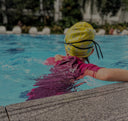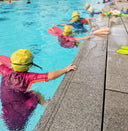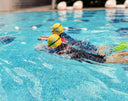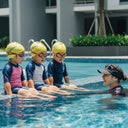Dreamer Swim Academy에 오신 것을 환영합니다

수영 레슨을 일찍 시작하는 것이 자녀의 발달에 도움이 되는 이유
부모로서 "수영 레슨을 시작하기에 적절한 시기는 언제일까?"라는 고민을 하실 겁니다. 그 답은 생각보다 일찍 찾아올지도 모릅니다. 이 심층 가이드는 어린 시절부터 긍정적인 물생활을 접하는 것이 아이에게 줄 수 있는 강력한 발달적 "선물"을 탐구합니다. 두려움을 예방하는 것부터 두뇌 발달을 촉진하는 것까지, 그 모든...











